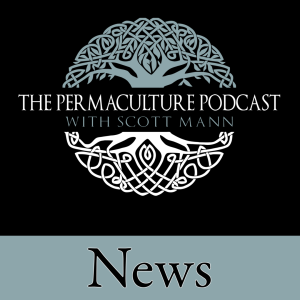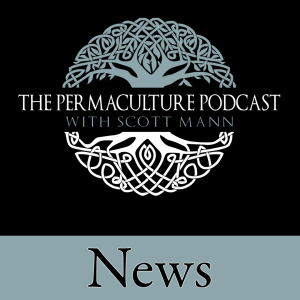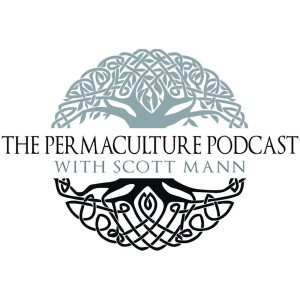Episodes

Monday Jul 10, 2023
Monday Jul 10, 2023
Dan Palmer’s LegacyWatch David Holmgren’s Video: “Dan Palmer’s Legacy”Interview: David Holmgren’s Design Journey (Part 1)Interview: David Holmgren’s Design Journey (Part 2)Interview: Allan Savory - Managing ComplexityDavid Holmgren’s Live, Online PDCClass starts on July 13th, 2024, so register today!Storytelling for Climate ChangeProject DrawdownI’m planning to be there on July 19th at 12 Noon, Eastern, so, register now and I’ll see you there!Do with SuSign up to be one of the first to learn more.

Saturday Jul 01, 2023
Saturday Jul 01, 2023
The Pemaculture Podcast PatreonTerraso
Terraso
Terraso’s YouTube Channel
EcoAgriculture Partners
1,000 Landscapes for 1 Billion People
Costa Rican Permaculture
VerdEnergia
Black Sheep Regenerative Resource Management
Interview: Creating a Regenerative Supply Chain - Rewild Organics | Joshua Hughes
Interview: Joshua Hughes - Regenerative Investing
Just Action
The Color of Law by Richard Rothstein
Just Action by Richard Rothstein, Leah Rothstein
Geologist’s Primer
Geologist’s Primer Kickstarter
Interview: Anna Urbanik - Herbalist’s Primer
Scott’s Appearances on The Urban Farm Podcast
743: Scott Mann On The Ripples Of Permaculture Pt 1.
744: Scott Mann On The Ripples Of Permaculture Pt 2.

Sunday May 28, 2023
Sunday May 28, 2023
Eddy Garcia of Living Earth Systems joins me to discuss Natural Aquaponics and how we can create beautiful, functioning systems whether we prefer to nerd out on the numbers or learn through observation and experience.Find out more about Eddy and his work at Living Earth Systems and view these systems in action on Instagram.

Sunday May 21, 2023
Sunday May 21, 2023
My guest is Natalie Bogwalker, the visionary behind Wild Abundance, a permaculture skills center and homestead near Asheville, North Carolina. As a primary instructor at Wild Abundance, she teaches a variety of classes, including tiny house building workshops, women's carpentry, and permaculture design courses. She likes to share her passion with others to help them live in an empowered and Earth-centered way. Find out more about Natalie and her classes at WildAbundance.net.

Thursday May 18, 2023
Thursday May 18, 2023
After more than a decade producing long-form, guest-driven, interview-based episodes, there are changes coming to The Permaculture Podcast.Listen to find out what's happening and how you can be a part of this transition.

Sunday May 14, 2023
Sunday May 14, 2023
My guest today is Tim Krahn, a Canadian engineer, builder, and author of Essential Rammed Earth Construction from New Society Publishers. Tim joins me to share his thoughts and experiences with rammed earth as a natural building method. This includes the distinction between raw and stabilized rammed earth and how rammed earth can reduce the amount of cement required for a long-lasting wall. Tim also gives an estimate of the price difference between stick-built walls and professionally installed rammed earth, while acknowledging that natural building is a growing but still niche field. We close with a discussion of the importance of valuing our time when considering the cost of erecting a building or other project to come to the real price for any of our work.You can find his book, Essential Rammed Earth Construction at NewSociety.com.

Sunday May 07, 2023
Sunday May 07, 2023
What does it mean to go back to the ground and learn the fading skills necessary to work the forest with our hands? To read the land assisted by tools we sight with our own eyes? To create new visions of old roles, such as a land steward or cottager? I explore those thoughts and more with my guest today, Hazel, who some of you may know as Tom Ward. You can find out more about Hazel and his work at siskiyoupermaculture.com.Resources Hazel's Collected Videos and Recordings Heartwood Institute Brock Dolman - Occidental Arts & Ecology Traditional Aboriginal Burning (Cool Burning)Recommended Reading Beyond the War on Invasive Species by Tao Orion Braiding Sweetgrass by Robin Wall Kimmerer Daughters of Copper Woman by Anne Cameron Emergent Strategy by Adrienne Brown Keeping it Living by Nancy Turner The Shallows by Nicholas Carr The Spell of the Sensuous by David Abram Tending the Wild by Kat Anderson World Without Mind by Franklin Foer

Friday Apr 28, 2023
Friday Apr 28, 2023
My guest today is Lindsey Bender, the chief mycologist for Field and Forest Products, Inc., a mushroom spawn and supply company located in Wisconsin.Find out more about Lindsey and Field and Forest Products, Inc. at fieldforest.net.

Friday Apr 21, 2023
Friday Apr 21, 2023
Rob Avis, of Verge Permaculture, joins me to talk about rainwater harvesting.
This conversation is based on his book from New Society Publishers, Essential Rainwater Harvesting. Rob wrote this book along with his wife and Verge Permaculture Partner, Michelle. Though they began their professional careers as engineers designing solutions in the oil fields, they now live on a productive permaculture homestead in Alberta, Canada, and use that experience to create and share all the formulas, calculations, and components needed to create a productive system for capturing clean, healthy water.
You can find more about Rob's work at VergePermaculture.ca, and his book, Essential Rainwater Harvesting at NewSociety.com.Resources Rainwater Harvesting Toolkit Peter Coombes - Urban Water Cycle Solutions Dr. Anthony Spinks PhD Thesis on Biofilms and Sludges American Rainwater Catchment Systems Association (ARCSA) North American Rainwater Harvesting Code

Tuesday Apr 18, 2023
Tuesday Apr 18, 2023
This episode is a look at the large-scale operations at D.C. Water to turn municipal waste into fertilizer and energy at the Blue Plains Waste W10ater Treatment Plant and looks at ways we can take the principles of permaculture and move them from the home to the community scale. The audio of the interview comes from a video which you'll find on the podcast's YouTube Channel at: YouTube.com/thepermaculturepodcast You can view the video directly by visiting: bit.ly/bloomsoil
